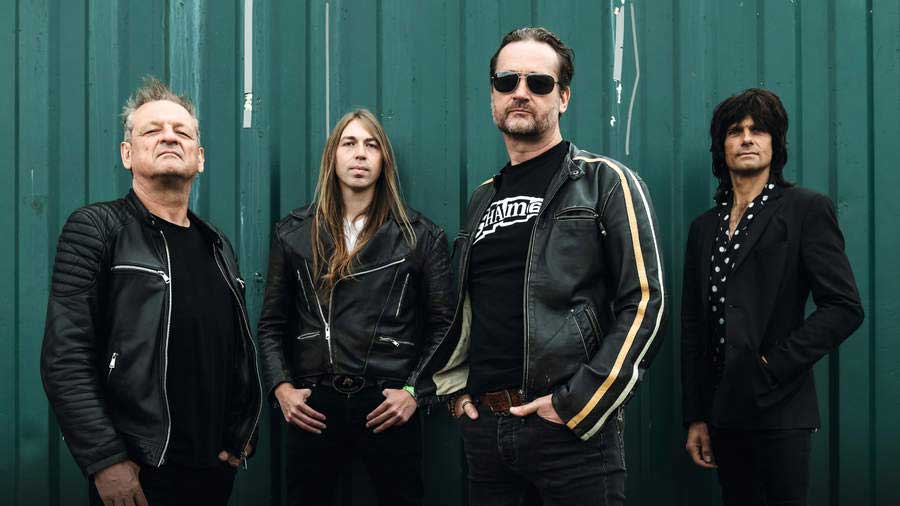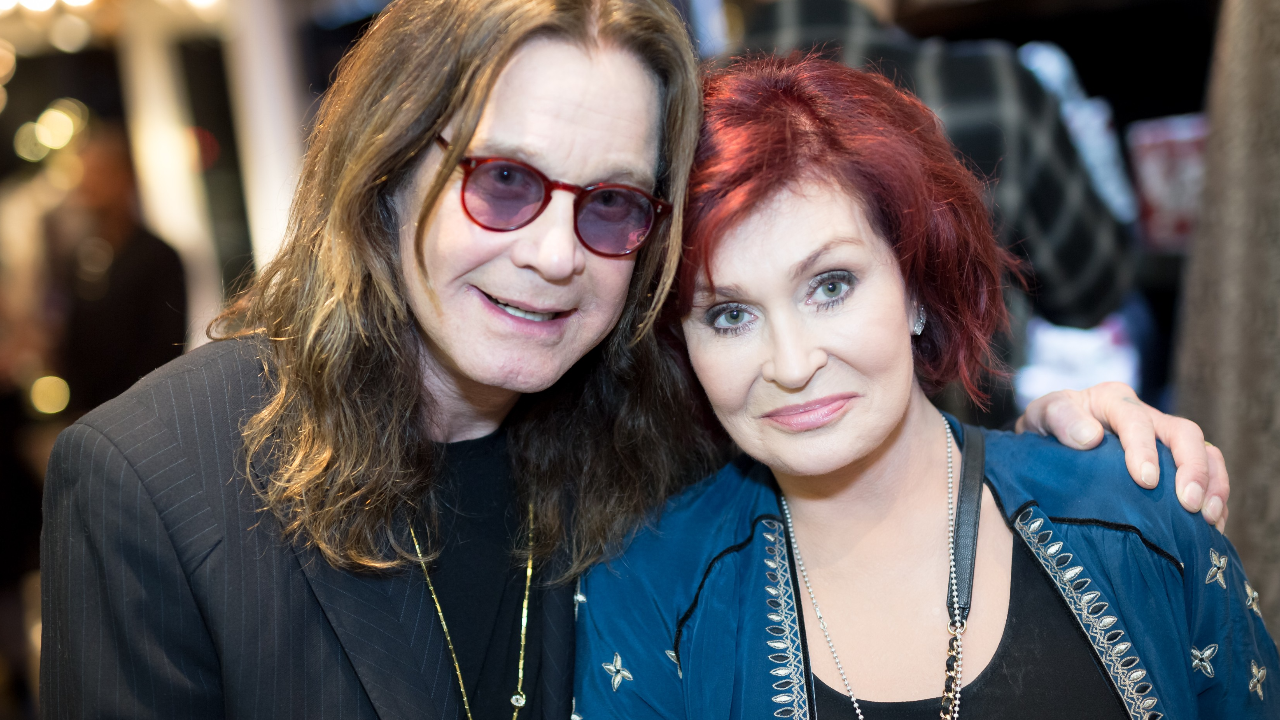Six things you need to know about Wayward Sons
Britrockers Wayward Sons are back with a political chip on their shoulder and a head start on the Zoom era

“I genuinely believe this is the finest album I’ve ever made,” Toby Jepson says of Wayward Sons’ third album Even Up The Score. No small boast, as the singer has spent over three decades at Britrock’s coalface – first in Little Angels, then as the frontman in Gun and Eddie Clarke’s Fastway, and as a producer for Saxon, Chrome Molly and many others.
In 2011 he became involved in the Dio’s Disciples project at the behest of Ronnie’s widow Wendy – “A fantastic experience, but it left me wanting to create my own thing again.”
Which is why he found himself, pushing 50, starting a new band with bassist Nic Wastell (ex-Chrome Molly), Phil Martini on drums and latterly guitarist Sam Wood.
“I just enjoy the camaraderie of being in a group,” he insists.

Yes, you’re right, they do take their name from the Kansas song. And there’s an origin story behind it.
“It’s the first song I ever heard going to a rock club at fourteen years old,” explains Jepson. “I snuck into Victoria’s in Scarborough. I had my dad’s donkey jacket on and oxblood Doc Martens hoping that I would be accepted. As I walked in, Carry On Wayward Son was playing and it just struck me as ‘I’ve arrived. This is my place. This is where I belong.’ When I was putting a band together there was no question it would be called Wayward Sons.”
They’re a benevolent dictatorship.
Sign up below to get the latest from Classic Rock, plus exclusive special offers, direct to your inbox!
“Bands don’t work as democracies,” he claims. “I think it’s pretty clear I’m the leader. I put the band together. I’m the principal songwriter and they all recognise and understand that. But I also have massive respect for them. If those guys turned round to me and said, ‘We don’t like that’ or ‘We don’t want to do that’ then absolutely, I discuss it with them and we figure it out.”
Late-70s power pop is in their DNA.
On tracks like Bloody Typical and Big Day, the new album careers into foot-on-the-monitor new wave territory. But then, as a songwriter, Jepson has always been an open-minded soul. “Ours was a real music family. My sister was really into The Clash and the Pistols. I’d be putting on Rainbow and Sabbath and I’d go downstairs and my dad would be listening to the latest Ian Dury record To me it all felt the same.
"I’ve never had this barrier thing of ‘that’s that type of music and I can’t like that’. I definitely had a love of more poppy stuff – bands like Blondie, Elvis Costello, British and American new-wave pop. They all sounded like great songs to me."
You can take them or leave them.
“There’s definitely more of a ‘don’t give a fuck‘ attitude to this band than others I’ve been in,” says Jepson. “I feel that Wayward Sons is the opportunity to say the things perhaps I’ve felt a little reticent about saying in Little Angels, or wasn’t smart enough to say at the time. Now I’m more worldly-wise and the whole thing with this band is, ‘Look, this is our thing, like it or hate it, it is what it is.’”
They have strong opinions (and they aren’t afraid to share them).
“We’ve gone through a tumultuous period, not just with Covid, but with the last five years,” he explains. “The Trump era for me was a huge influence in terms of my need to talk about what is happening to the human race. It seems we’re actually taking steps backwards instead of forwards.
"Brexit is an absolute disaster as far as I’m concerned. If only because, as a musician, I was enjoying the fact that I could tour in Europe, meet my friends and continue the relationships with people I’ve had for many years, and now that has been removed. As I’m getting older I’m definitely getting gnarlier and more angry about things, because I ain’t got a lot of time left!”
They’re a Zoom-era band.
Even before Covid, Wayward Sons were working remotely. With Toby based in Bath, Phil in Portugal, Nic in Leicester and Sam in Leeds, they had to. “We just organise our time. Lockdown for us was kind of odd because making the record online didn’t feel different, because we’ve always worked like that. We’ve always had to speak to each other on Zoom, to find dates to rehearse to do a show.
"It’s not like in the Little Angels days where we used to rehearse eight hours a day, seven days a week. And I’m glad, because it gives space for life in other ways."
Will Simpson was Music Editor of the Big Issue South West in Bristol before relocating to Thailand to become Deputy Editor of English language books magazine New Arrivals. Since returning to the UK he's freelanced, writing about music for Classic Rock, IDJ, Metro and Guitarist, and environmental issues for Resource and The Spark. He also writes for contract publishing titles such as Teach, Thomson Air, Musician and Korg.
